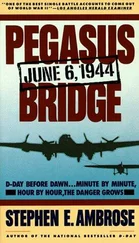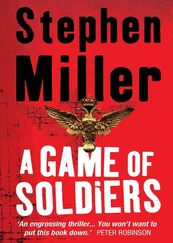Dad put up a basketball backboard and goal over our garage. The GIs taught me and my brothers to play the game. We were "shirts" and "skins." I don't know that I ever knew their last names-they were Bill and Harry, Joe and Stan, Fred and Ducky-but I've never forgotten their scars. Stan had three-on his arm, his shoulder, his hand. Fred and Ducky had two; the others had one.
We didn't play all that often because these guys were taking eighteen or twenty one credits per semester. "Making up for lost time," they told us. Their chief recreation came in the fall, when they would drive up to northern Wisconsin for the opening weekend of deer season. Beginning in 1947, when I was twelve, I was allowed to go with them.
We slept in a small farmhouse, side by side in sleeping bags on the floor. There was some drinking-not much, as we would get up at 4:00am (0400 to the ex-GIs, which mystified me), but enough to loosen their tongues. In addition, their rifles came from around the world-Czech, British, Russian, American, Japanese, French-and each man had a story about how he acquired his rifle. It was there that I heard my first war stories. I've been listening ever since. I thought then that these guys were giants. I still do.
By the time I went to Madison for my own college education, the ex-GIs had graduated and were off making their livings. Over the next four years I developed my fair share of academic snobbery. My professors put me to reading such books as Sloan Wilson's The Man in the Gray Flannel Suit and William Whyte's Organisation Man. These books, like the professors, deplored the conformity of the 1950s. They charged that the young corporate men of the '50s marched in step, dressed alike, seldom questioned authority, did as they were told, were frighteningly materialistic, devoid of individualism. By the time I became a graduate student, I was full of scorn for them and, I must confess, for their leader, President Elsenhower-the bland leading the bland.
But in fact these were the men who built modern America. They had learned to work together in the armed services in World War II. They had seen enough destruction; they wanted to construct. They built the interstate highway system, the St Lawrence Seaway, the suburbs (so scorned by the sociologists, so successful with the people), and more. They had seen enough killing; they wanted to save lives. They licked polio and made other revolutionary advances in medicine. They had learned in the armed forces the virtues of solid organization and teamwork, and the value of individual initiative, inventiveness, and responsibility. They developed the modern corporation while inaugurating revolutionary advances in science and technology, education and public policy.
The ex-GIs had seen enough war; they wanted peace. But they had also seen the evil of dictatorship; they wanted freedom. They had learned in their youth that the way to prevent war was to deter through military strength and to reject isolationism for full involvement in the world. So they supported NATO and the United Nations and the Department of Defence. They had stopped Hitler and Tojo; in the 1950s they stopped Stalin and Khrushchev.
In his inaugural address President John F. Kennedy described his generation: "The torch has been passed to a new generation of Americans- born in this century, tempered by war, disciplined by a hard and bitter peace, proud of our ancient heritage-and unwilling to witness or permit the slow undoing of those human rights to which this nation has always been committed."
The "we" generation of World War II (as in "We are all in this together") was a special breed of men and women who did great things for America and the world. In the process they liberated the Germans (or at least the Germans living west of the Elbe River). In June 1945 Eisenhower told his staff, "The success of this occupation can only be judged fifty years from now. If the Germans at that time have a stable, prosperous democracy, then we shall have succeeded." That mission, too, was accomplished.
In general, in assessing the motivation of the GIs, there is agreement that patriotism or idealism had little if anything to do with it. The GIs fought because they had to. What held them together was not country and flag, but unit cohesion.
And yet there is something more. Although the GIs were and are embarrassed to talk about the cause they fought for, they were the children of democracy, and they did more to help spread democracy around the world than any other generation in history. At the core, the American citizen soldiers knew the difference between right and wrong, and they didn't want to live in a world in which wrong prevailed. So they fought and won, and we all of us, living and yet to be born, must be forever profoundly grateful.
![Stephen Ambrose Citizen Soldiers [Condensed] обложка книги](/books/346737/stephen-ambrose-citizen-soldiers-condensed-cover.webp)








